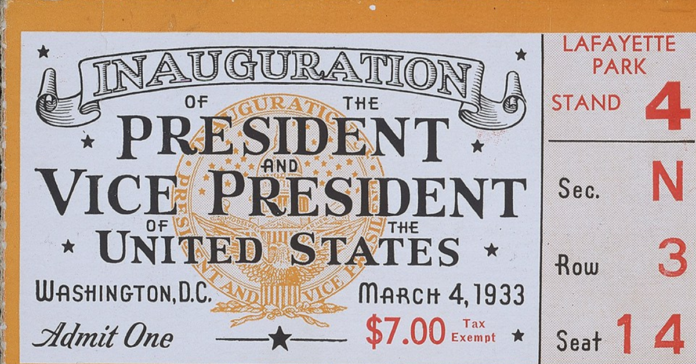With the Democratic National Convention underway, the party is solidifying its platform heading into the 2020 election that is creating a divide between anti-energy activists and state officials who recognize the importance of oil and gas to state economies.
This divide is particularly apparent in the West where state governors can see firsthand the impacts of fracking bans and federal leasing restrictions.
New Mexico Governor Michelle Lujan Grisham (D), who ran on a pro–climate agenda, is breaking away from Democratic Presidential Nominee Joe Biden in touting the importance of natural gas production for her state’s economy and opposing Biden’s pledge to ban fracking on public lands.
Lujan Grisham, who is set to take part in tonight’s “Bold Leadership: Women Governors Leading the States” DNC panel, told the New Mexico Oil and Gas Association at the start of the Democratic primary process that she would request a waiver from any drilling ban passed by a Democratic administration, “to allow us to continue to produce in New Mexico.”
This stance reflects strong support for energy development among American voters. According to a new poll sponsored by the American Petroleum Institute and conducted by Morning Consult, 82 percent of voters in several key battleground states, including Colorado, Nevada, and New Mexico say that oil and gas production “provide value to their lives.”
In the wake of the COVID-19 pandemic and state shutdowns, voters—especially those in western states—believe that energy production will play an important role in helping the economy recover. Sixty percent of voters agreed that energy development would be important to economic recovery, with Texans and New Mexicans being “especially likely” to say so.
The results suggest the Democratic party, whose candidates supported policies like fracking bans and a rapid phase out of fossil fuel use during the primary, is facing a fissure on the issue and will have to thread the political needle during the 2020 election in order to win over more moderate voters.
“As we approach the election, it is clear a majority of voters know and support the critical role the natural gas and oil industry plays in driving the economic recovery, keeping energy costs low and protecting national security,” API President and CEO Mike Sommers said.
In New Mexico, where taxes, fees, and royalties from energy production are a key source of funding for education, lawmakers have spoken out about the negative consequences of a production ban on federally-managed land in the state. This reflects the crucial role energy production has on New Mexico’s finances.
Energy production in New Mexico contributed $1.36 billion in taxes and fees to public education in the state in FY2019, an increase of 28 percent over the previous year. The additional funding was enough to fund K-12 education across the state and to allow Lujan Grisham to announce a plan to allow state residents to attend public colleges for free.
In an interview on MSNBC’s “Morning Joe,” Lujan Grisham thanked oil and natural gas for putting New Mexico in a “very good situation” with “significant resources” to fund free college tuition.
“I have no doubt this will change the dynamic of New Mexico forever,” she said.
Other New Mexico Democrats have also expressed support for the energy industry and resisted calls for production bans.
“I don’t support that policy. It’s important for me to be an advocate for the work that is happening in southeastern New Mexico in producing energy and making sure that New Mexico continues to be a net energy exporter and making sure that we’re doing it in a responsible way,” said Rep. Xochitl Torres Small (D, N.M.) in an interview last year.
“I know that if we were to shut down oil and gas drilling in New Mexico today, we’d have to shut down our schools tomorrow, statewide.”
Meanwhile, New Mexico Sen. Martin Heinrich (D) warned that production bans, “risk unintended consequences like shifting production to places like Venezuela and Russia.”
As 2020 drags on, voter support for the industry has held steady.
With COVID-19 and economic concerns in mind, 75 percent of New Mexico voters see oil and gas production as a means for the economy to rebound. Voters in other western states agreed with the need to protect domestic energy production. In Arizona, two-thirds of voters—including half of Democrats—are more likely to vote for a candidate who is supportive of access to oil and gas produced in the U.S., while a majority acknowledges its dependence on oil and gas for major aspects of daily life like cooking, transportation and heating and cooling homes.
Colorado voters are very supportive of lowering emissions and adopting cleaner energy technologies. Even with those views, 83 percent of respondents still believe that Congress should foster domestic energy production in an environmentally responsible way.
Meanwhile, voters in Nevada say COVID-19 has hit their state’s economy especially hard and view the oil and natural gas industry as playing a large role in its recovery. In addition, six in ten voters are more likely to vote for a candidate supportive of domestic production.
“U.S. energy leadership has been a priority of every one of our last seven presidents, Democrat and Republican – a trend this polling shows American voters want to see continue. Proposals to ban U.S. energy production are out of step with bipartisan support for an all-of-the-above energy approach and would set America back by returning us to the days of relying on foreign energy,” said Sommers.

